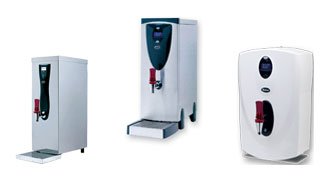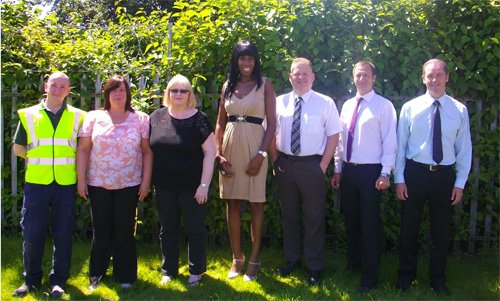
by Fern Shaw | Feb 18, 2013 | Water Coolers
Multifunctional
Water coolers don’t just mean cool, clean, fresh drinking water on demand. They can also mean piping hot water for your favourite hot drinks to warm you through the nippy cold months. I’m referring to our range of water boilers .
Even more convenient in the ‘Choices Division’ is the:-
AquAid Water Chiller / Boiler Combination!
Then, just when you thought the convenience and options couldn’t become any more marvellous, we also offer a selection of hot and cold beverages for your work place too:
Café Direct Drinks Range:
- Cadbury’s Drinking Chocolate
- Café Direct Coffee
- Bovril
- A full range of Soups
- Kenco coffee
Cafe Direct, Fair Trade
Wherever possible, we choose to supply Fair Trade products, like Café Direct coffee. Fair Trade guarantees a better deal for Third World producers and allows them to invest money in local healthcare and education.
Hot & Cold Water Dispensers from AquAid can also be installed with cool, refreshing sugar-free natural flavours peach, lemon & lime, apple and pear and for each bottle we sell, we’ll donate 5p to Christian Aid.
Now, if you’ll excuse me, all this choice has made me thirsty, I’m off for a quick cuppa Bovril.

by Fern Shaw | Feb 8, 2013 | Water Coolers
Inception and operations
We’ve been in operation for 13 years. An indication of our commitment to what we do shows in our great staff retention:
- Lindsey Page, our dynamic Office Manager, has been with AquAid for 10 years
- Joe Farnell, Account Manager extraordinaire, with AquAid for 7 years
- Pete Dinger, Clive Homer and Paul Unitt have been with us for 5 years
We have a total staff contingent of 13 people who are dedicated to offering our very extensive customer base, 780 Bottle fed water coolers and 1538 Mains fed water coolers, with unrivaled service and attention.
Monies raised
In 2012 AquAid Birmingham raised £43 000 for our hand-picked charities that provide, amongst other sustainable projects, clean drinking water to communities in Third World countries. That translates to enough funds for 4 300 children to have drinking water for life.
EDWCA Audit
The EDWCA, European Drinking Water Cooler Association (previously known as the European Point-Of Use Drinking Water Association EPDWA), is an association that was formed to “promote, develop and maintain the highest standards of hygiene, safety and ethics within the European Point-Of-Use Drinking Water industry to the benefit of customers.”
We are delighted to announce that last year we scored 100% in our EDWCA audits. This means that not only do we adhere to the stringent EDWCA requirements and take pride in our work, but that our valued customers benefit from us meeting and surpassing these standards too.


